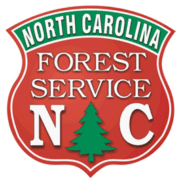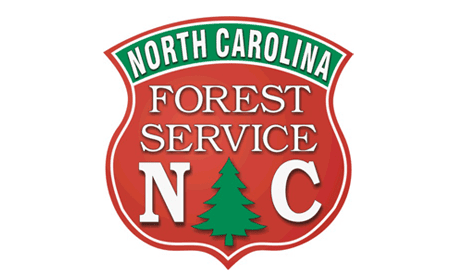Forest Service Urges Residents To Hold Off Burning Yard Debris, Leaves
There’s a slight chance of rain early next week, but local forest service officials are encouraging area residents to hold off burning those leaves or other yard debris until the area has had some good rainfall.
It’s fall wildfire season and the area has been put in the abnormally dry to moderate drought category, according to N.C. Forest Service County Ranger Rob Montague. Local fire departments and the forest service have responded to 24 fire calls in Vance and Granville counties so far in November, according to information from the local forest service office.
“Due to limited rainfall, falling leaves adding dry fuel to the ground and dry conditions, the N.C. Forest Service urges citizens to be cautious with campfires and when burning yard debris,” according to the statement.
The fall wildfire season typically lasts from mid-October until mid-December, the time of year when people do a lot of yard work that may include burning leaves and yard debris. The leading cause of wildfires in North Carolina is debris burning. When left unattended, debris fires can escape and start wildfires. Most of the recent fires started from debris burning or discarded wood stove ashes.
There are many factors to consider before burning debris. The N.C. Forest Service encourages residents to contact their local county forest ranger before burning debris. The ranger can offer technical advice and explain the best options to help ensure the safety of people, property, and the forest. The local number for Granville and Vance counties is (919) 693-3154. To find contact information for other offices, visit www.ncforestservice.gov/contacts.
For people who choose to burn debris, the N.C. Forest Service offers the following tips to protect property and prevent wildfires:
- Consider alternatives to burning. Some types of debris, such as leaves, grass and stubble, may be of more value if they are not burned, but used for mulch instead.
- Check local burning laws. Some communities allow burning only during specified hours. Others forbid it entirely.
- Make sure you have a valid permit. You can obtain a burn permit at any N.C. Forest Service office or authorized permitting agent, or online at www.ncforestservice.gov/burnpermit.
- Keep an eye on the weather. Don’t burn on dry, windy days.
- Local fire officials can recommend a safe way to burn debris. Don’t pile vegetation on the ground. Instead, place it in a cleared area and contain it in a screened receptacle away from overhead branches and wires.
- Household trash should be hauled away to a trash or recycling station. It is illegal to burn anything other than yard debris.
- Be sure you are fully prepared before burning. To control the fire, you will need a hose, bucket, steel rake and a shovel for tossing dirt on the fire. Keep a phone nearby, too.
- Never use kerosene, gasoline, diesel fuel or other flammable liquids to speed up debris burning.
- Stay with your fire until it is completely out.
Burning agricultural residue and forestland litter: In addition to the rules above, a fire line should be plowed around the area to be burned. Large fields should be separated into small plots for burning one at a time.
Before doing any burning in a wooded area, seek input and technical advice from County Ranger Rob Montague at 919.693.3154.


